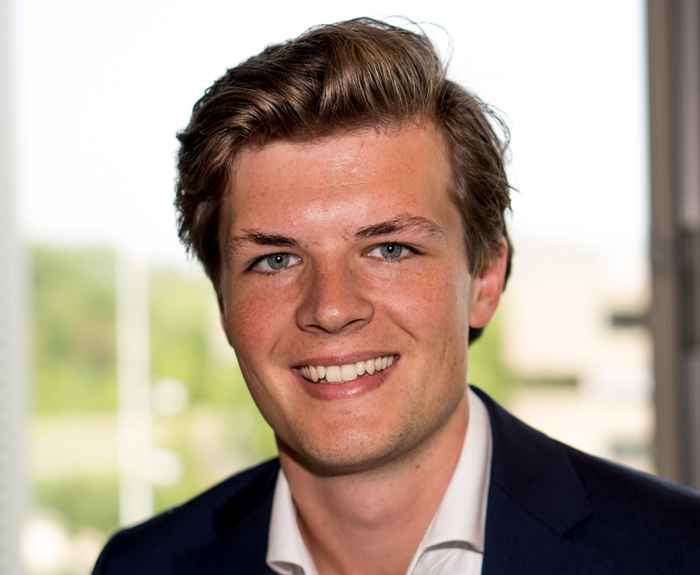CPT student Declan Blom receives award for his thesis on tax and technology
Amsterdam Centre for Tax Law
24 March 2022
Student researcher Declan Blom has received the award for the best thesis of the Faculty of Economics and Business Administration of the University of Amsterdam (UvA) for the academic year 2021/2022. Mr. Blom’s thesis combined data science (natural language processing or NLP) with tax law and is titled “Building a supervised prediction model for case law on the arm’s length determination of loans”. In his thesis, Mr. Blom built a supervised prediction model with a dataset of Dutch transfer pricing case law. Based on the description of a loan's conditions, the trained model built in the thesis is able to predict with considerable accuracy if a loan agreement is at arm's length or not.
Mr. Blom’s thesis was written in completion of the academic requirements of UvA’s Masters in Business Administration (Digital Business track) and under the umbrella of the CPT project. His research was supervised by Professors Julien Rossi (Faculty of Economics and Business - Section Business Analytics) and Błażej Kuźniacki (CPT Project).
In relation to this research, Dr. Kuźniacki notes “Mr. Blom’s thesis contributes to the interdisciplinary research on tax and technology in many ways, not least by revealing the potential of NLP in a technical and complex area of tax law (Transfer Pricing). Hopefully, his research will be seen by other students and experts in the tax law and AI as a promise of future exciting developments on the intersection of new technologies and law. For this reason, it was an interesting thesis to be written within the CPT Project of the Amsterdam Centre of Tax Law”.
In addition to the aforementioned award, Mr. Blom’s thesis is also nominated for the UvA Thesis Award 2022, a competition between the best thesis of all UvA faculties, which will be decided in June of this year.
An ongoing research
Currently, Mr. Blom’s thesis research is being extended with (i) a more advanced vectorization method to increase the performance of the model, and (ii) an increased size of the dataset to be able to generalize the results better. The preliminary results are promising, although there is still much work to be done. The aim of this extended research is to determine which words and sentences are most decisive in the model’s classification of a loan agreement to be at arm’s length or not. The increased performance of the classification model combined with interpretability of the results would be very interesting for tax advisors in the transfer pricing domain and businesses, as it would give valuable (empirical) insights in which loan characteristics Dutch courts deem (most) important in the classification of a loan as at arm’s length or not.
About CPT Students
Every year, the CPT project selects students from the different UvA’s masters programs to conduct research under the umbrella of such project. The selected students participate in the CPT Project by focusing their final master’s thesis on different research topics covered by this initiative. The students work under the close supervision and guidance of CPT project’s Academic Leaders, who assist and support them in their research endeavours. With their expertise and research, the student contribute to the overall goal of the CPT project.
About the CPT project
Whenever major economic or social changes occur, tax systems must follow suit. Working from the assumption that society is in the process of transitioning to a new economic model, accelerated by the corona crisis, the CPT project examines how tax systems can be designed and structured for a society based primarily on cashless payment methods, online platforms and digital technologies, such as artificial intelligence and blockchain. The ultimate goal of the CPT project is to arrive at concrete recommendations to help governments and businesses to address problems under current tax systems and/or introduce structural tax reforms. The project also aims at providing guidelines and/or minimum standards for the redesign of modern tax systems.
More information
See the website of the CPT project
Contacts
- Prof. dr. Dennis Weber, Director of the ACTL and CPT project’s General Supervisor, e-mail: d.m.weber@uva.nl
- Juan Manuel Vázquez, Academic Coordinator of the CPT project; j.m.vazquez@uva.nl
Source: ACTL/UvA
